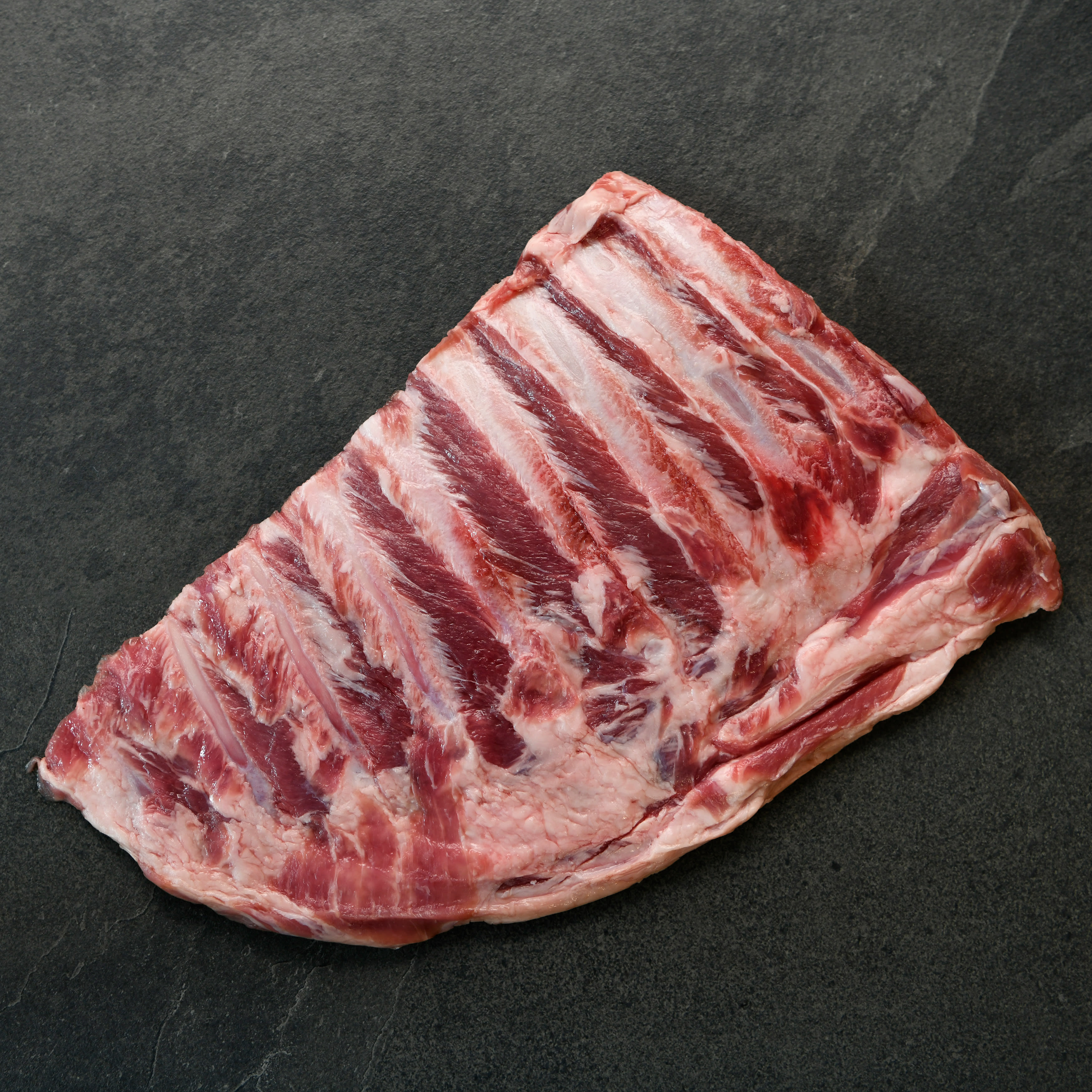
Texas Iberico® Spare Ribs from Pasture Raised Pork (2-3 lbs)
Texas Iberico® Spare Ribs from Pasture Raised Pork (2-3 lbs)
Iberico Pork Ranch-Raised in Texas
Item: IP-13A |
US Only |
All Natural
Perishable





Description
- Pure breed Iberico pork
- Pasture raised in Texas
- Forage fed on acorns and mesquite beans
- Raw ribs, will arrive frozen
- Size - Approx. 2-3 lbs
These meaty spareribs come from Spanish Iberico pigs raised on a ranch in Texas. There they forage outdoors their whole lives, eating grasses, acorns, mesquite beans and prickly pear fruit. This imparts a deep flavor and intramuscular fats which make the ribs so tasty.
Spare ribs are larger and meatier than baby back ribs. They take a bit longer to cook, but the end result is worth it. Follow your favorite spare rib recipe, but get ready for a whole other level of flavor.
Our pure breed Iberico pigs are pasture-raised in Comfort, Texas by third-generation rancher, Ashly Martin, on the Trails End Ranch. He personally cares for the small herd of noble pigs, ensuring their comfort and wellbeing. The wide open countryside hosts Texas live oak and mesquite trees, as well as prickly pear cactus. The pigs forage for acorns, grass, herbs, sweet mesquite beans, prickly pear fruit and any other wild delicacies they can find. This uniquely Texan diet adds rich flavor to the pork.
A while back, a group of purebred Iberico pigs was flown from Spain to America and delivered to the Trails End Ranch. The 1,500-acre ranch was hog heaven, a similar environment to the 'dehesa' rangeland of western Spain. Texas live oaks have a sweet acorn much like those of Spain. The Iberico pigs feast on these rich nuts, and they absolutely love sweet mesquite beans and prickly pear fruit. All these fruits are full of nutrition and antioxidants that add a uniquely Texan flavor to the pork.
All the Texas Iberico® pigs live outside their entire lives on one ranch, wandering the pasture together with over an acre of rangeland per animal. Texas Iberico® pork is certified Prop 12 compliant, which means the animals are raised with care, meeting or exceeding the animal welfare standards set by California Proposition 12.
Your spare ribs will arrive frozen, packed in dry ice. Thaw before cooking. The USDA recommends cooking all whole cuts of meat (including pork) to 145°F as measured with a food thermometer placed in the thickest part of the meat.
